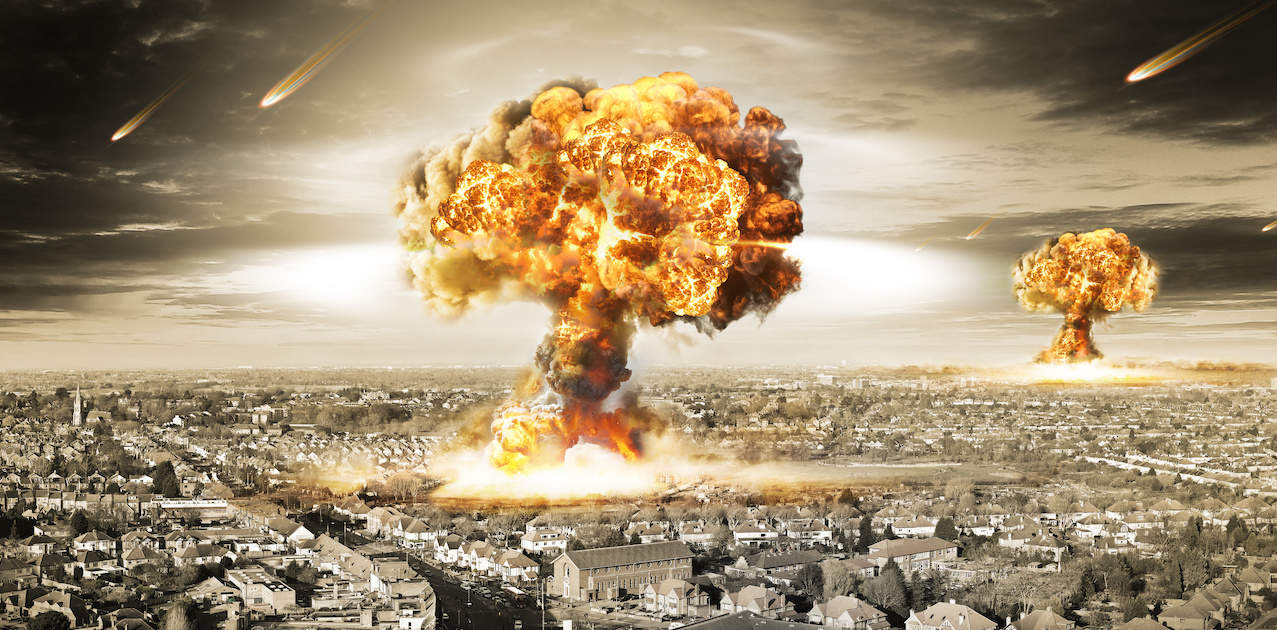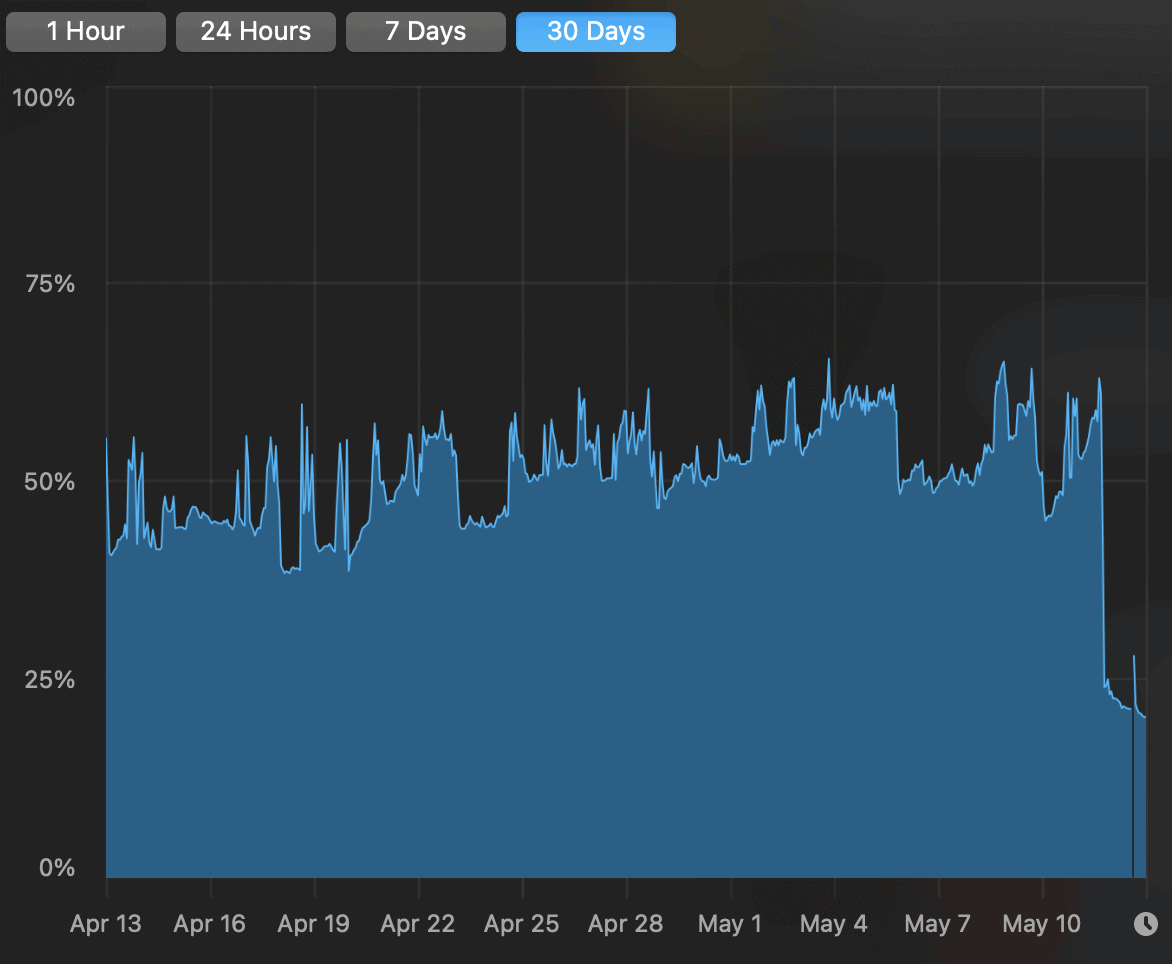Until COVID-19, the attacks of September 11, 2001 stood as the most substantive shifts in world attitudes, generational divides, and stark “before and after” milestones. Still, none of these events have had a sustained and significant impact on the majority of American lives at the scale WWII did, America’s last major initiative.
The terrorist attacks have had a sustained impact, but not a significant impact on most Americans. We take more time in airport security lines. But to the average American the impact of that day is increasingly distant. This is not to suggest no one was impacted. American service men and women, their loved ones, and victims of attacks have certainly carried a burden.
COVID-19 was a relatively short period as conflict or emergencies go. While COVID touched the lives of millions, either through infection or death, the vast majority got sick once or twice, donned a mask, and carried on. For some, temporary economic hardships endured, and for some still surely endure.
Not since WWII have Americans had the sort of full-scale mobilization that is sometimes required of nations. With it came a massive reorganization of the economy, a huge loss of life and fragmented relationships through the loss of men, rationing of food and basic supplies, huge cultural shifts in attitudes towards women and minorities, and a significant years-long test of resolve and endurance.
I believe no event has come close to matching the level of sacrifice, cultural change, and effort since what WWII had on America.
A massive shift in production and wartime security
If WWIII broke out tomorrow — I don’t know who between, but I’m sure Russia would be involved and China wouldn’t be a super close ally — the America of today would likely behave a lot like the America of 1940, with some striking differences.
It took about 6-9 months for America’s economy in the 40s to shift to wartime production. Henry Ford and GM’s oft-touted conversion from cars and trucks to planes and tanks are well known. But lesser known are all the furniture factories that shifted to the production of war materials like bedding and floating barges. Or companies that made steel pots and pans suddenly making bullets and ball bearings.
Indiana, as one example, had a munitions plant in Elkhart that once produced cars but became one of the nation’s leading producers of torpedos and missiles.
That was the United States of 1940. I question whether or not the US could match that level of production so quickly anymore. It would probably take us a year or more. Perhaps for good reason — safety standards, working conditions, and other expectations might not permit it in some useful, but perhaps expensive and damaging ways. Many of our factories have rusted out and while could be salvaged they are nowhere near the level of high-tech production they’d need to be today.
Meet General Tim Cook and Lt. Commander Jeff Bezos
The US economy of today would see a radical re-alignment as some overseas supplies shift. Here’s what I think would happen at some point or another in the duration of a lengthy Third World War:
- Apple and Intel would shift to exclusive wartime production of chips and hardware for U.S. operations. iPhones, PCs, and computers would largely dry up in the commercial markets and be unavailable until after the war. Tim Cook would carry a level of national security value akin to a four-star general.
- Google and Facebook would become arbiters of American propaganda, both inside the U.S. and around the world. We might still drop leaflets on disconnected communities, but any place assumed to have working internet and cellular service would see rise a new level of advertising and propaganda.
- TikTok and non-US social media would be banned by an act of Congress and become taboo culturally.
- Amazon and Wal-Mart would shift their entire logistics network to delivering war supplies, food, and other rations to civilians. In the event of an attack, Amazon warehouses may well be as much of a target as ammunitions depots.
- Unable to consume nearly the calories they’re used to, most Americans would start losing weight.
- Microsoft will become the nation’s leading source of wartime software, capable of server-side processing military objectives, targeting, drone strikes, and operations.
- A draft would likely be instated, revealing a new level of unpreparedness. In the 40s, the US had no guns, bullets, or much of a standing army. We’ve never forgotten that lesson (for better or worse), but today we’d lack a pool of people lean, fit, and healthy enough to serve.
- Unaccustomed to shortages, rations, and constraints, a large portion of Americans would look foolish complaining about their inability to buy $3.50 gas.
- About 20% of Americans, mostly Republicans in the event of war with an authoritarian regime, will publicly side with the enemy. Another 5-10% will do so privately.
- Candidates for office will continue to divide into “Extreme authoritarian” or “Slightly authoritarian”, not unlike today.
- The U.S. Department of Homeland Security, which did not exist in the 40s, will become a modern arm of a police state, capable of surveilling and tracking nearly every soul in America with the help of software companies like Facebook, Twitter, Google, Microsoft, Apple and cell carriers like Verizon and AT&T. Siding or working against Homeland Security will not be much unlike a German siding against the brown shirted para-military or SS forces of the 40s.
- The threat of nuclear war is ever-present, with small radioactive devices being detonated in war zones and near war production facilities inside and outside American cities. Because of their existence, no large-scale “D-Day Style” invasions or amassed armies can be used since they could easily be wiped away.
- Millions of immigrants will have to be recruited into the US to supply enough workers in factories, since it’s unlikely there are even enough women and non-combat men in the country to meet demand.
- A significant portion of the creative class will become consumed by the war efforts. For many, job losses will be significant for those unable to shift to war time efforts (e.g., advertising unable to find military contracts). For most, they will either be absorbed into the fighting armed forces or in production of goods.
After the war, another post-war realignment looms
Assuming the United States wins this theoretical Third World War, the geopolitical effects are impossible to discern. But it’s not unreasonable that like Winston Churchill recognizing the torch of Britain’s empire must now be handed over to the US in 1947, US President Theodore Washington Eisenhower, who was genetically engineered to win voter approval in 2034, will be ousted after signaling the end of the American empire.
Also assuming the US’ envious and strategic geographic position prevented massive invasions or destruction to the mainland, the US will regain economic footing quickly as soldiers return home, economic demands are placed back on consumer production and home goods, and reshaping society.
- Recognizing the failure of relying on fossil fuels, the US begins earnest production to completely eliminate their use.
- The electric grid, which strained under intense demand, is rebuilt partly during the war and again afterwards to ensure redundant sources.
- Recognizing the unlikely luck of building American cities was actually blessing against bombings, Americans sprawl out further, building a new ring of exurban suburbs, with electric cars designed to new ranges thanks to huge funding in battery research during the war. Racial tensions persist.
- The security, defense, and police apparatus fails to scale back properly. Budgets and scope shrink only with the diminished force of troops, but are ultimately larger than before the war.
- Facebook, unable to provide any new kind of product or service that anyone wants, joins the ranks of IBM and Lockheed-Martin as an opaque military contract operation.
- A wave of immigrants that arrived in the country, either as refugees or labor sources, will remain, sparking a new generation of unrest and mistrust. However, among those that served in the armed forces, they will retain a new level of respect and admiration unavailable in the non-combat classes.
I hope I’m right about almost none of this.


